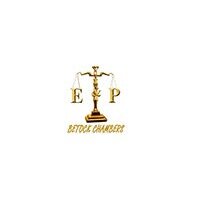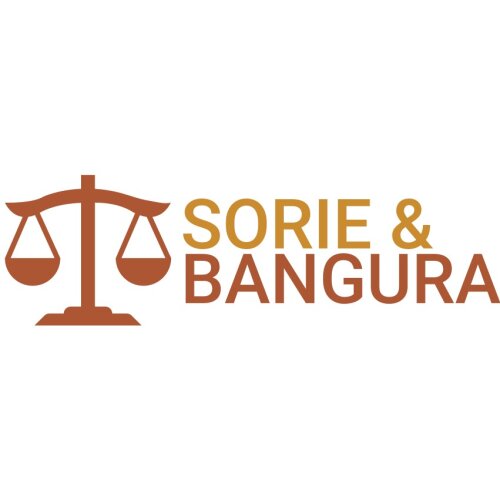Best New Business Formation Lawyers in Freetown
Share your needs with us, get contacted by law firms.
Free. Takes 2 min.
List of the best lawyers in Freetown, Sierra Leone
About New Business Formation Law in Freetown, Sierra Leone
New business formation in Freetown, Sierra Leone, is governed by a set of legal frameworks that aim to facilitate the establishment of various types of business entities, including sole proprietorships, partnerships, limited liability companies (LLCs), and corporations. The legal foundation for business formation is outlined primarily in the Companies Act of 2009. This legislation sets out the procedures, requirements, and structures needed for creating and operating a business within Freetown and the broader Sierra Leonean context. Understanding these legal nuances is crucial for entrepreneurs and business owners to ensure compliance and to optimize the operational potential of their business ventures.
Why You May Need a Lawyer
Engaging a lawyer in the process of new business formation can prove beneficial for several reasons. Here are some common situations where legal advice might be needed:
- Structuring Your Business: Determining the appropriate business structure can have significant legal and tax implications. A lawyer can provide advice on whether to form a sole proprietorship, partnership, LLC, or corporation.
- Compliance and Licensing: Navigating the regulatory requirements for obtaining the necessary licenses and permits for your business can be complex without legal guidance.
- Drafting and Reviewing Contracts: Business formation often involves agreements with suppliers, clients, and partners. Lawyers ensure these contracts are legally sound and protect your interests.
- Intellectual Property Protection: If your business involves creative assets or proprietary technology, a lawyer can help in securing trademarks, copyrights, or patents.
- Dispute Resolution: Should any legal disputes arise during the setup process, having legal representation can help in resolving matters efficiently.
Local Laws Overview
Freetown's new business formation is primarily regulated under the following legal frameworks:
- Companies Act of 2009: This act provides the legal guidelines for the formation, operation, and dissolution of companies in Sierra Leone, including requirements for registration, management, and compliance.
- Business Registration Act: All businesses must be registered with the Office of the Administrator and Registrar General. This process involves submitting the necessary documents and paying requisite fees.
- Revenue Laws: Businesses must comply with local tax laws, including paying corporate taxes, GST (Goods and Services Tax), and withholding taxes as applicable.
- Labour Laws: If you plan to employ workers, understanding local employment laws, such as the Labour Act, is crucial.
- Environmental and Health Regulations: Depending on the nature of your business, complying with environmental and health regulations may be necessary.
Frequently Asked Questions
What is the first step in forming a new business in Freetown?
The first step is deciding on the business structure and then registering your company with the Office of the Administrator and Registrar General.
How long does it take to register a company?
The registration process typically takes between five to ten working days if all documentation is in order.
What documents are needed for company registration?
Documents required include the Memorandum and Articles of Association, proof of identity for directors and shareholders, and a completed application form.
Are there specific business licenses required in Freetown?
Business licenses vary depending on the industry. Common sectors requiring additional licenses include food services, construction, and transportation.
Do I need a local partner to start a business in Sierra Leone?
While not always legally required, having a local partner may be beneficial for navigating cultural and business practices.
What taxes are applicable to new businesses?
New businesses must pay corporate taxes, GST, and may need to withhold taxes for employee earnings.
Is it possible to operate a business without a physical office?
Yes, small businesses and sole proprietorships can often operate remotely or from home, though specific compliance requirements must still be met.
How can I protect my business's intellectual property?
You can apply for trademarks, patents, or copyrights through Sierra Leone's intellectual property office.
What legal issues should I be aware of when forming a partnership?
Key legal issues include drafting a partnership agreement, liability issues, and the division of profits and responsibilities.
Can a non-citizen form a business in Freetown?
Yes, non-citizens can form businesses, but additional regulations may apply, particularly regarding employment and investment thresholds.
Additional Resources
Here are some resources that can assist with new business formation in Freetown:
- Office of the Administrator and Registrar General: The primary body for business registration.
- Sierra Leone Chamber of Commerce: Provides networking opportunities and resources for business owners.
- National Revenue Authority (NRA): For information on tax obligations and filings.
- Local Business Consultants: Offer advice and support for various legal and operational aspects of starting a business.
Next Steps
If you need legal assistance in new business formation in Freetown, consider the following steps:
- Research and Identify Reputable Lawyers: Look for legal professionals or firms with a proven track record in business law.
- Schedule Consultations: Discuss your business goals and legal needs with multiple lawyers to find the best fit for you.
- Prepare Documentation: Gather all necessary documents and information prior to your meetings to facilitate the process.
- Review Costs: Ensure you understand the legal fees and any additional expenses related to your business formation.
- Engage in Ongoing Legal Support: Consider establishing a long-term relationship with a lawyer for continuous support as your business grows.
Lawzana helps you find the best lawyers and law firms in Freetown through a curated and pre-screened list of qualified legal professionals. Our platform offers rankings and detailed profiles of attorneys and law firms, allowing you to compare based on practice areas, including New Business Formation, experience, and client feedback.
Each profile includes a description of the firm's areas of practice, client reviews, team members and partners, year of establishment, spoken languages, office locations, contact information, social media presence, and any published articles or resources. Most firms on our platform speak English and are experienced in both local and international legal matters.
Get a quote from top-rated law firms in Freetown, Sierra Leone — quickly, securely, and without unnecessary hassle.
Disclaimer:
The information provided on this page is for general informational purposes only and does not constitute legal advice. While we strive to ensure the accuracy and relevance of the content, legal information may change over time, and interpretations of the law can vary. You should always consult with a qualified legal professional for advice specific to your situation.
We disclaim all liability for actions taken or not taken based on the content of this page. If you believe any information is incorrect or outdated, please contact us, and we will review and update it where appropriate.












